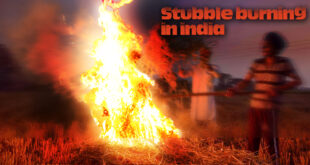
News
News : The UN’s top human rights body called on countries to stop selling or shipping weapons to Israel in a resolution passed on Friday that aims to help prevent rights violations against Palestinians amid Israel’s blistering military campaign in Gaza.
Concept:
- The UNHRC is a subsidiary body of the United Nations General Assembly (UNGA) responsible for promoting and protecting human rights worldwide.
- It was established in 2006, replacing the United Nations Commission on Human Rights (UNCHR), with the aim of addressing the shortcomings of its predecessor and enhancing the effectiveness of the UN’s human rights machinery.
Composition:
-
- The UNHRC consists of 47 member states elected by the UNGA through a process of equitable geographical distribution.
- Members serve for staggered three-year terms and are eligible for re-election, with a limit of two consecutive terms.
- Members are expected to uphold the highest standards of human rights and cooperate with the council in its work.
Functions and Mandate:
-
- The primary functions of the UNHRC include:
- Promoting universal respect for the protection of all human rights and fundamental freedoms.
- Addressing human rights violations and making recommendations to states on improving their human rights records.
- Undertaking both thematic and country-specific human rights reviews through its mechanisms. Furthermore, implementing special procedures as the such as the Universal Periodic Review (UPR) and commissions of inquiry.
- Engaging in dialogue and cooperation with governments, civil society organizations, and other stakeholders to advance human rights globally.
- Making recommendations to the UNGA and other UN bodies on human rights-related issues.
Universal Periodic Review (UPR):
-
- UPR, unique to UNHRC, reviews human rights records of all UN member states.
- UPR entails peer review, assessing each country’s human rights and offering improvement recommendations.
- UPR occurs every 4-5 years per member state, fostering dialogue and cooperation on human rights.
Special Procedures:
- UNHRC appoints experts to monitor and advise on human rights themes or country situations.
- Special rapporteurs, experts, and working groups conduct missions, issue reports, and engage stakeholders to address human rights concerns.
Commissions of Inquiry and Fact-Finding Missions:
- UNHRC can authorize fact-finding missions or establish inquiry commissions for human rights violations.
- These mechanisms play a crucial role in uncovering the truth, documenting violations, and holding perpetrators accountable for their actions.
 Chinmaya IAS Academy – Current Affairs Chinmaya IAS Academy – Current Affairs
Chinmaya IAS Academy – Current Affairs Chinmaya IAS Academy – Current Affairs
